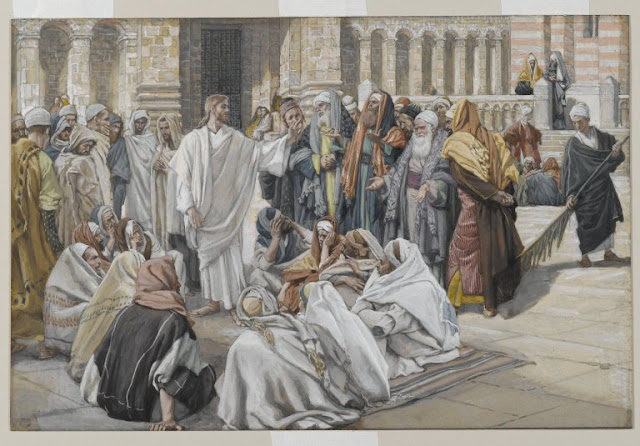After all the fasting, prayer and almsgiving of Lent; after
forty days of denial, we come, at last, to the great saving events of Holy
Week, with which Jesus ended his earthly life and mission. We see him proceeding
triumphantly into Jerusalem. We see him disputing with the leaders of his
people. He celebrates the Passover with his disciples. He washes their feet. He
prays alone during his Agony in the garden. He is arrested, tried, scourged,
crowned with thorns; and then crucified. He dies on the cross, and like any other
human, is buried.
Jesus carried an immeasurable burden on his shoulders. He
bore the weight of the sins of the world alone. But all through his earthly
ministry, his suffering and death, his Father was close to him, and the Holy
Spirit was present within him. The Holy Spirit sustains those who bear witness
to Christ, frequently at the cost of their lives. They are called martyrs, and
the word martyr means “witness”. All this is why we call this particular day
Passion Sunday as well as Palm Sunday.
Passion comes from the Latin word for suffering. When we suffer things, they happen to us rather than being controlled by us. The Passion of Jesus was something that happened to him. He surrendered control of his life to the earthly powers who brought him to his suffering and death. He did this willingly, knowing that it was the will of his Father, that it was the only option for the human race that he should die, taking our sins on his shoulders.
The Creed puts it like this: “He suffered under Pontius Pilate.” But we must
recall that it was his choice, and the will of his Father: “You would have no
power over me were it not given to you from above,” he tells the same Pontius
Pilate. But Jesus does not allow earthly powers to triumph. He surrenders his
life to them so that he may defeat them by rising from the dead. “God so loved
the world that he gave his only-begotten Son, that whoso believeth in Him
should not perish, but have everlasting life.”
There are times when earthly powers seem to triumph, when we
appear powerless in the face of them, when we seem to have no choice but to
yield to them. But we must never believe them to have the final say. Not only
did Jesus have the ultimate victory over them by rising from the dead, but in
the very act of defying God by killing his Son, these same earthly powers were
actually carrying out God’s will. We can never grasp the fullness of God’s plan
for his creation. But we can be assured of one thing: “He that doth endure to
the end shall be saved,” as Paul expresses it. If we remain faithful to him
despite all, we will share in his ultimate
victory over sin and death.
Fr Phillip.



























